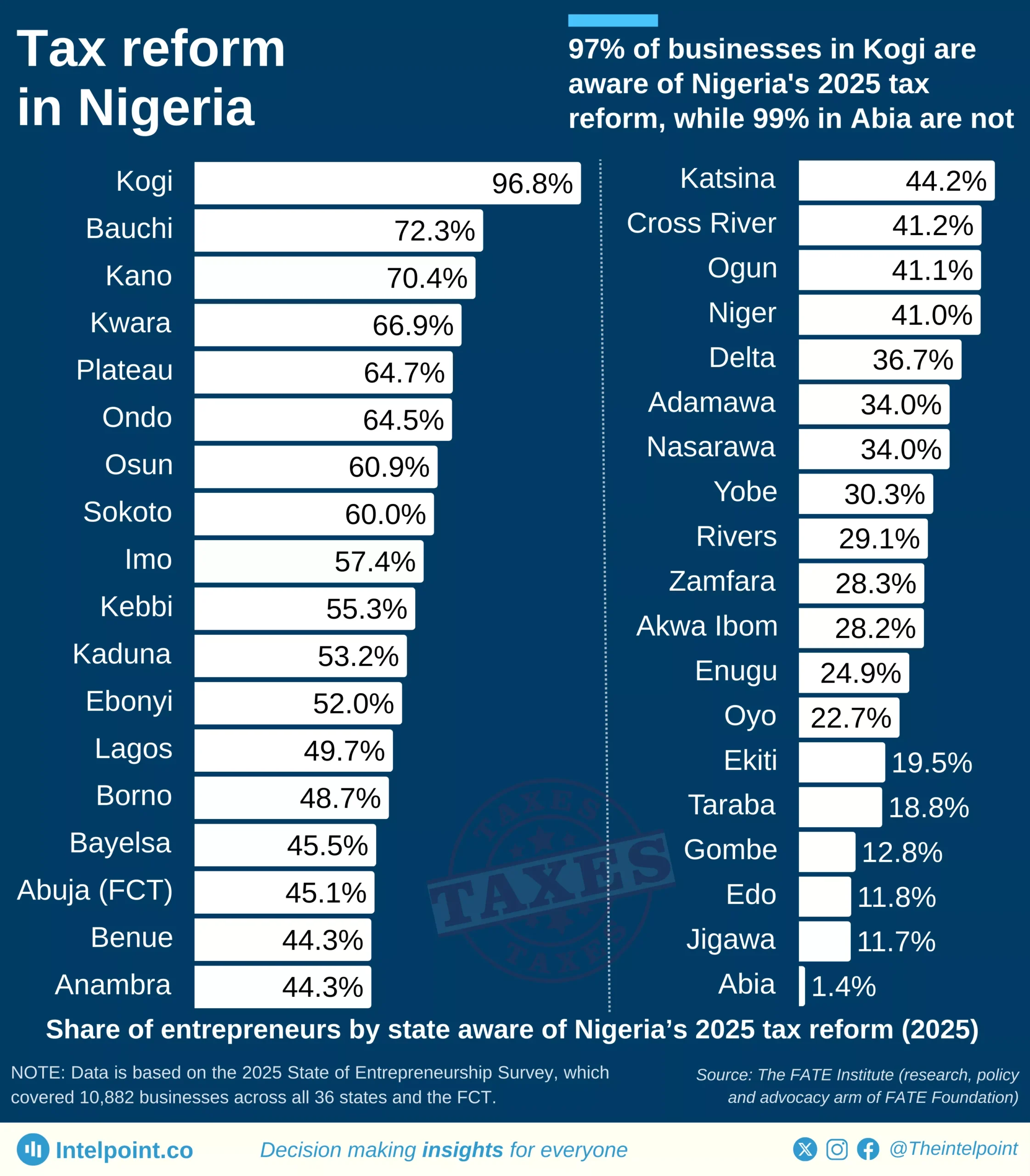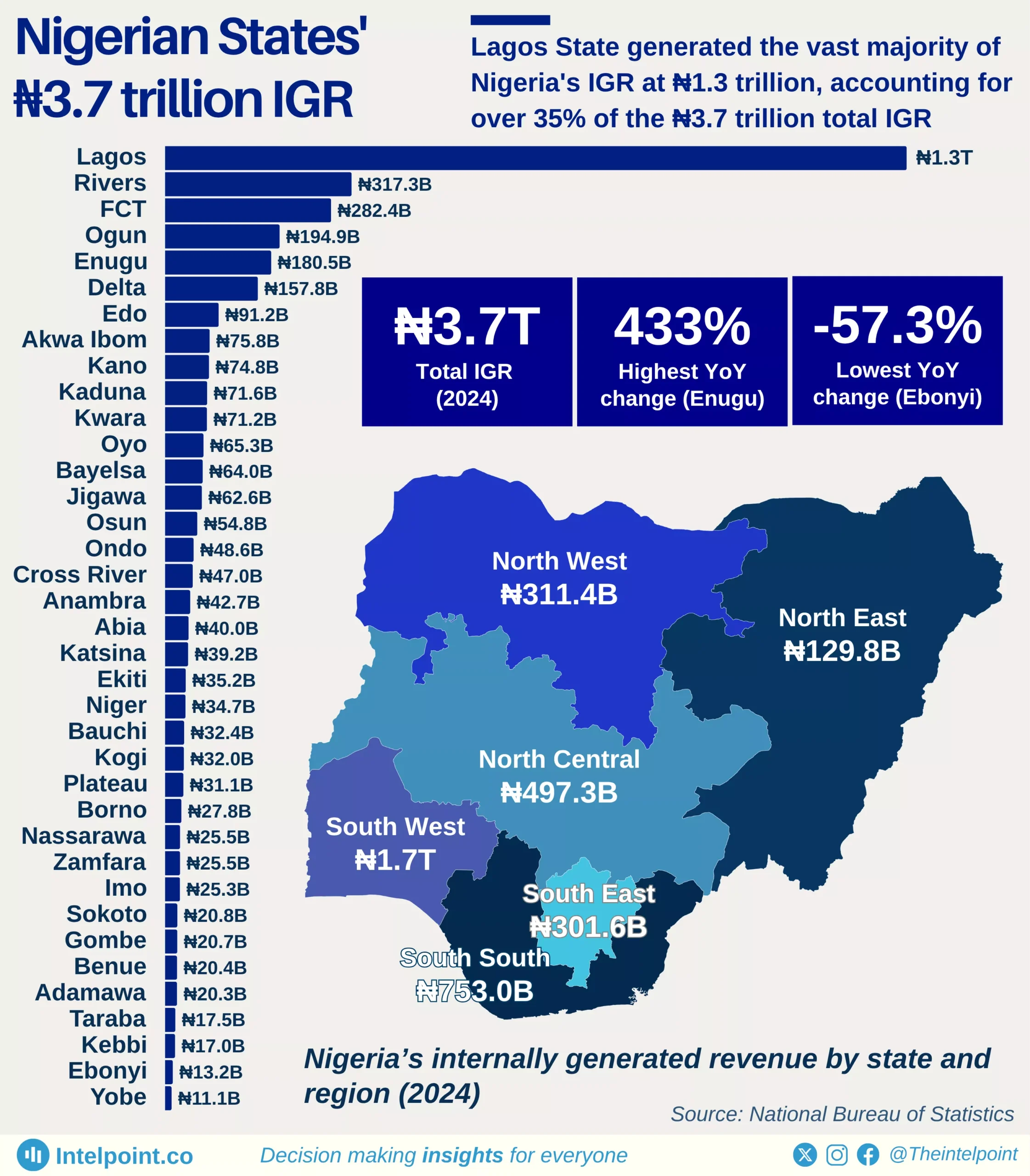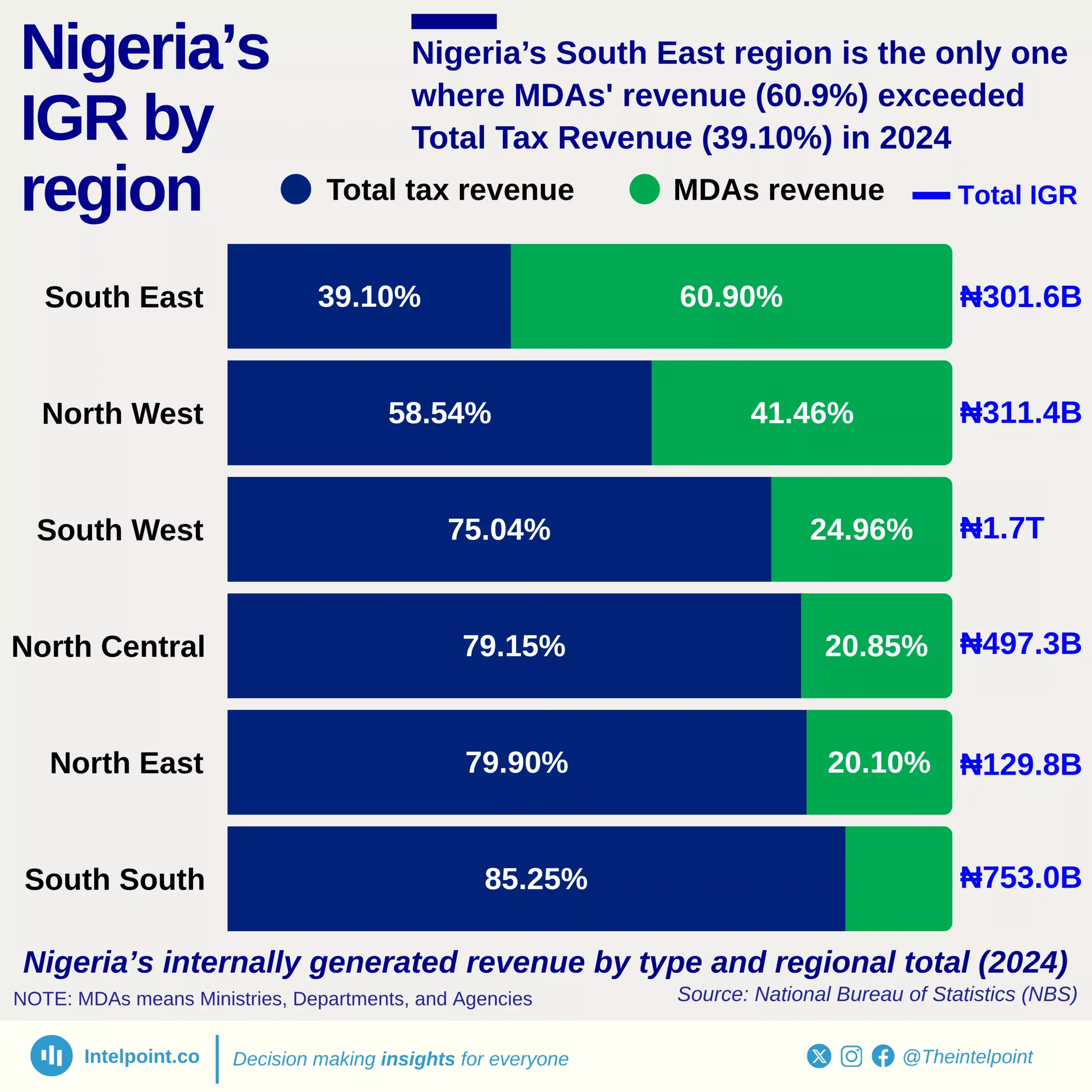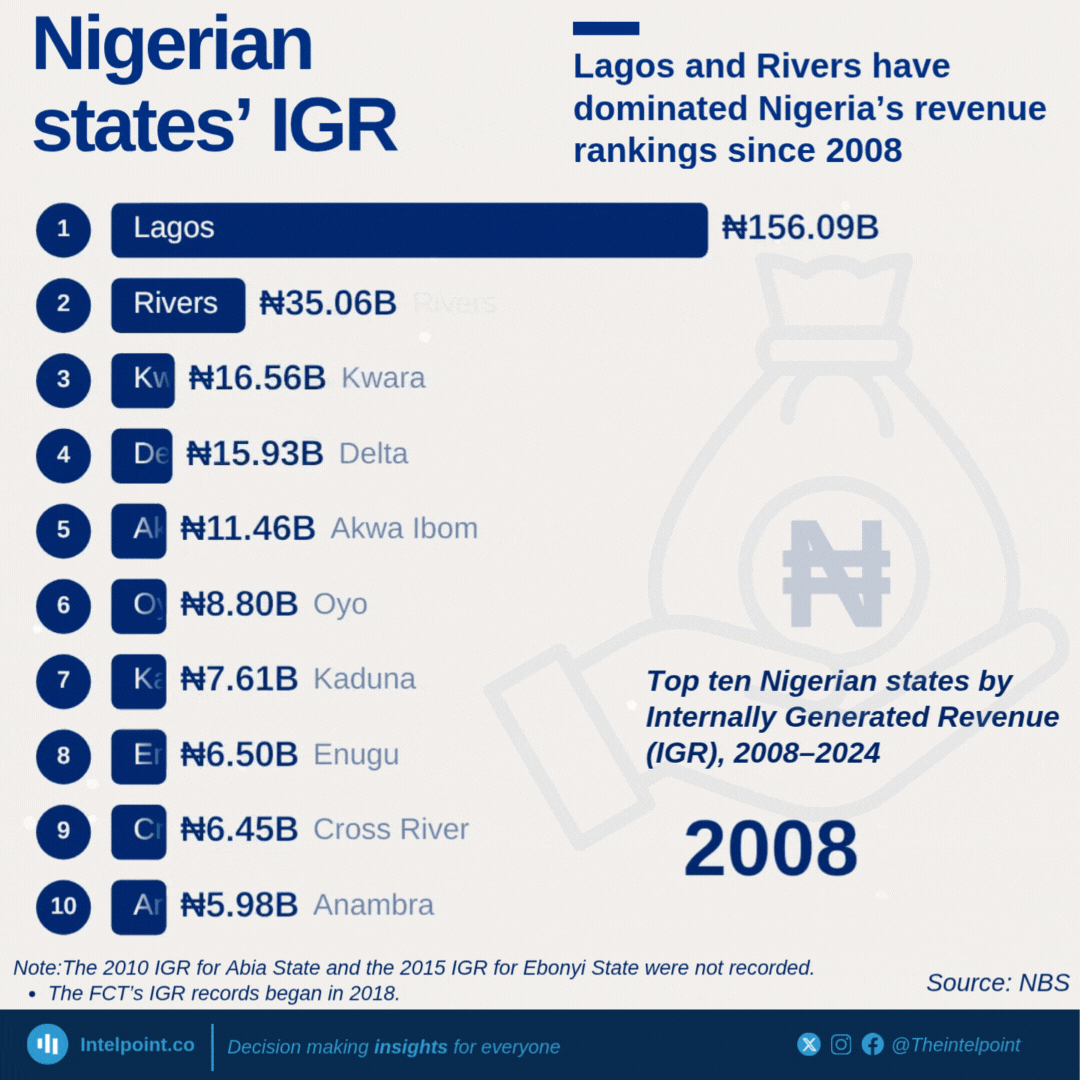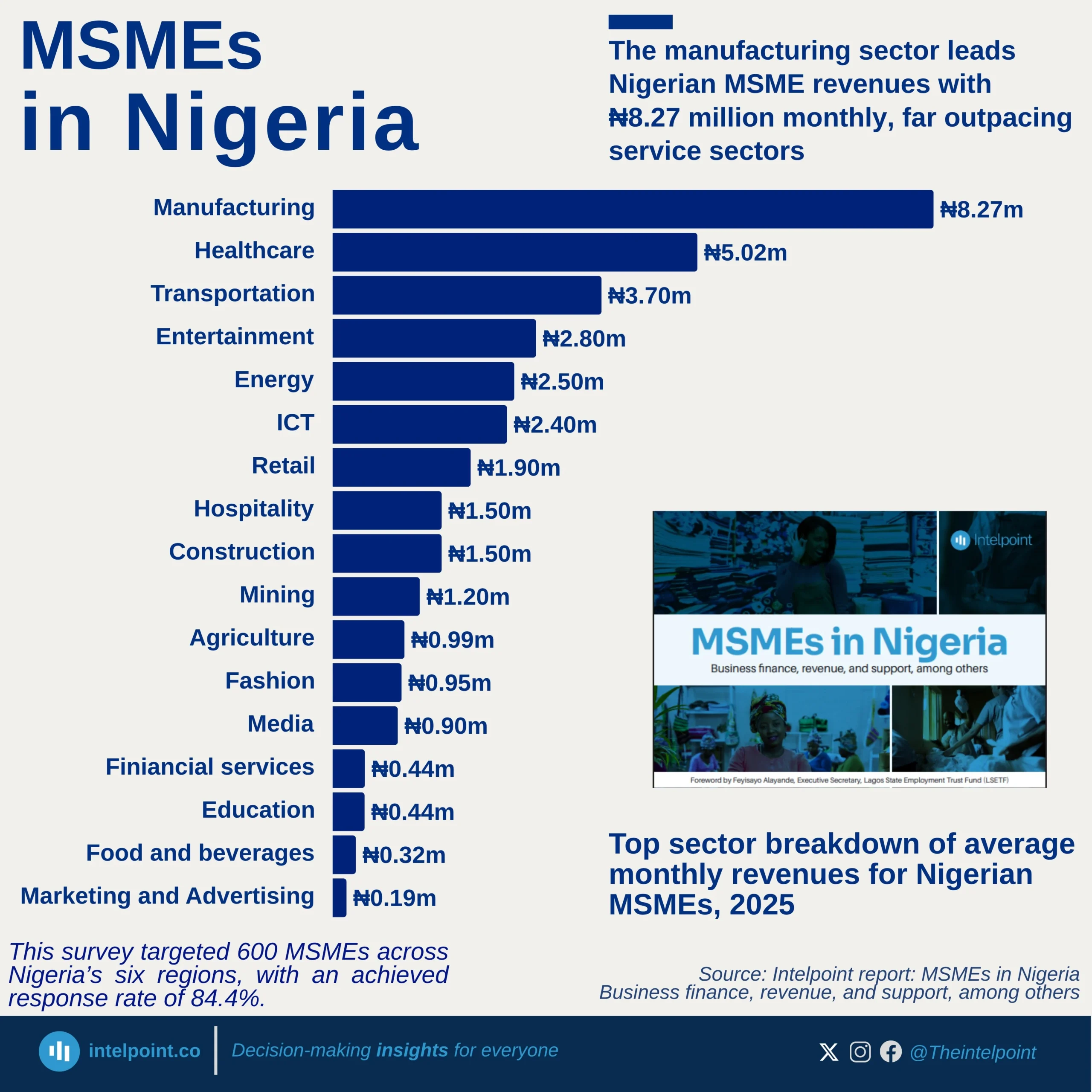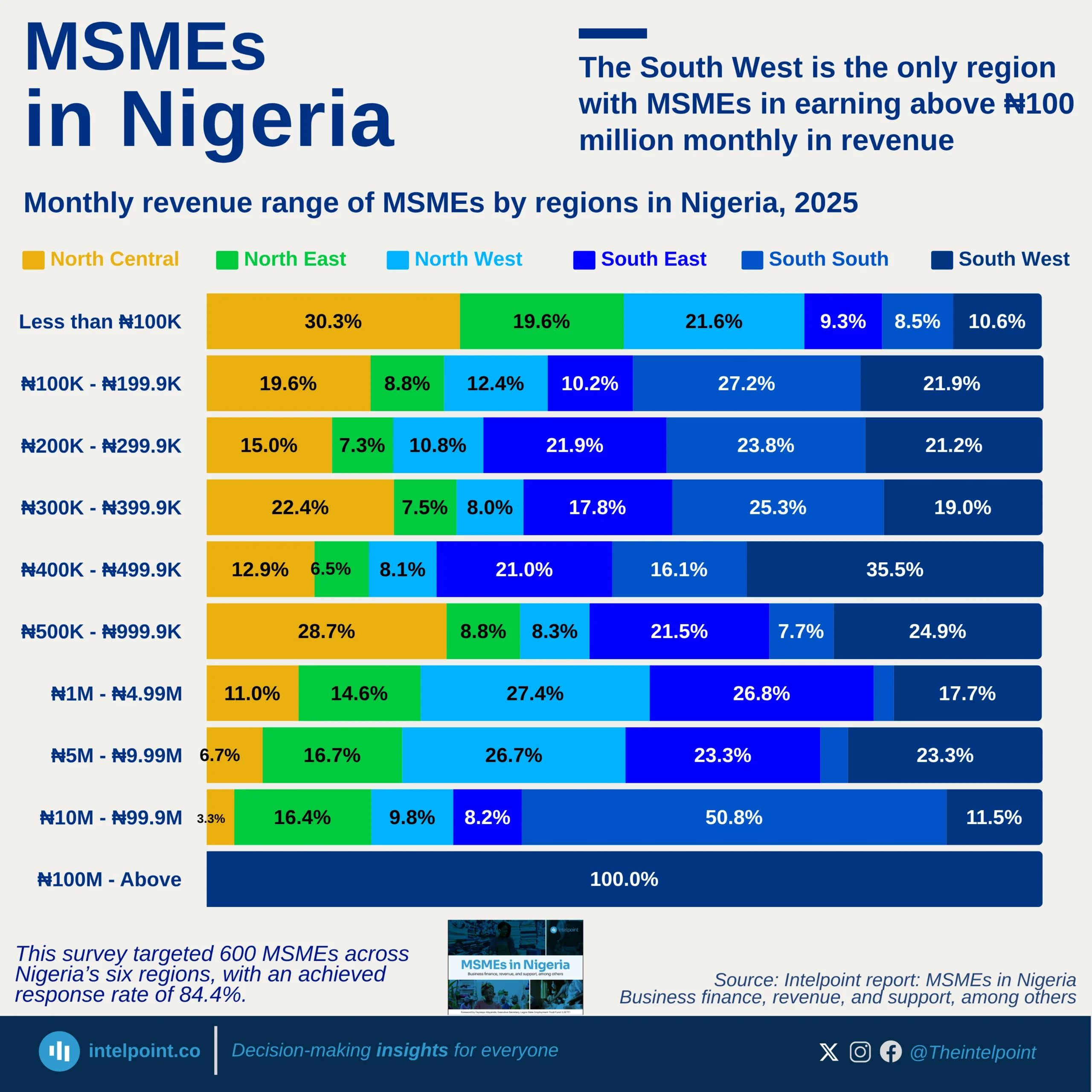From 2012 down to 2024, non-oil tax revenue consistently outperformed oil tax revenue in most years. In 2024, the Federal Inland Revenue Service (FIRS) recorded ₦15.9 trillion in non-oil tax revenue, nearly three times the ₦5.8 trillion collected from oil taxes. Non-oil tax revenue accounted for a dominant 73.3% of the total revenue generated for the year. This trend reflects a broader shift in Nigeria’s tax landscape, where non-oil sources are becoming increasingly significant. Oil tax revenue mainly comprises Petroleum Profit Tax (PPT) and Company Income Tax (Oil & Gas).
On the other hand, non-oil taxes include a wider range of sources such as Company Income Tax (Non-Oil), Gas Tax, Capital Gains Tax, and Stamp Duties. It also includes Nigeria Customs Service Import VAT and Non-Import VAT, both of which contribute significantly.
This diversification has helped improve revenue stability, especially during periods of oil price volatility. The sustained rise in non-oil revenue signals progress in tax reforms and improved economic resilience.
